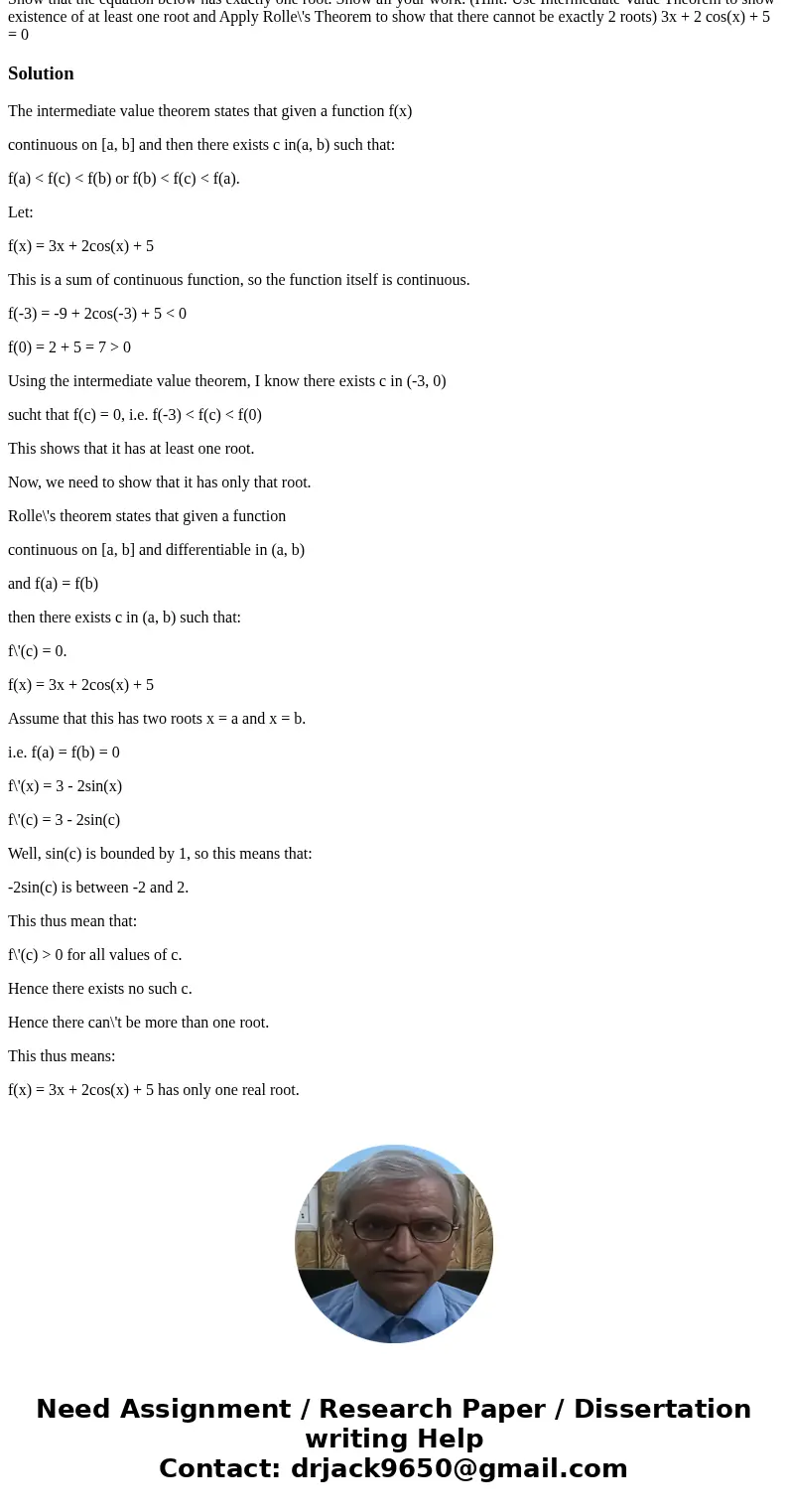Show that the equation below has exactly one root Show all y
Solution
The intermediate value theorem states that given a function f(x)
continuous on [a, b] and then there exists c in(a, b) such that:
f(a) < f(c) < f(b) or f(b) < f(c) < f(a).
Let:
f(x) = 3x + 2cos(x) + 5
This is a sum of continuous function, so the function itself is continuous.
f(-3) = -9 + 2cos(-3) + 5 < 0
f(0) = 2 + 5 = 7 > 0
Using the intermediate value theorem, I know there exists c in (-3, 0)
sucht that f(c) = 0, i.e. f(-3) < f(c) < f(0)
This shows that it has at least one root.
Now, we need to show that it has only that root.
Rolle\'s theorem states that given a function
continuous on [a, b] and differentiable in (a, b)
and f(a) = f(b)
then there exists c in (a, b) such that:
f\'(c) = 0.
f(x) = 3x + 2cos(x) + 5
Assume that this has two roots x = a and x = b.
i.e. f(a) = f(b) = 0
f\'(x) = 3 - 2sin(x)
f\'(c) = 3 - 2sin(c)
Well, sin(c) is bounded by 1, so this means that:
-2sin(c) is between -2 and 2.
This thus mean that:
f\'(c) > 0 for all values of c.
Hence there exists no such c.
Hence there can\'t be more than one root.
This thus means:
f(x) = 3x + 2cos(x) + 5 has only one real root.


 Homework Sourse
Homework Sourse